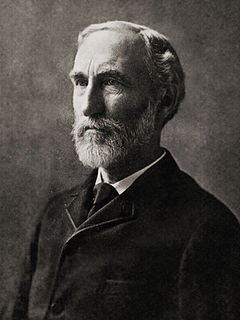A Quote by Geoffrey West
You could not have evolved a complex system like a city or an organism - with an enormous number of components - without the emergence of laws that constrain their behavior in order for them to be resilient.
Related Quotes
Complex organisms cannot be construed as the sum of their genes, nor do genes alone build particular items of anatomy or behavior by themselves. Most genes influence several aspects of anatomy and behavior as they operate through complex interactions with other genes and their products, and with environmental factors both within and outside the developing organism. We fall into a deep error, not just a harmful oversimplification, when we speak of genes "for" particular items of anatomy or behavior.
The laws of thermodynamics, as empirically determined, express the approximate and probable behavior of systems of a great number of particles, or, more precisely, they express the laws of mechanics for such systems as they appear to beings who have not the fineness of perception to enable them to appreciate quantities of the order of magnitude of those which relate to single particles, and who cannot repeat their experiments often enough to obtain any but the most probable results.
The assumption that the laws of nature are eternal is a vestige of the Christian belief system that informed the early postulates of modern science in the seventeenth century. Perhaps the laws of nature have actually evolved along with nature itself, and perhaps they are still evolving. Or perhaps they are not laws at all, but more like habits.
Policemen and laws can never replace customs, traditions and moral values as a means for regulating human behavior. At best, the police and criminal justice system are the last desperate line of defense for a civilized society. Our increased reliance on laws to regulate behavior is a measure of how uncivilized we’ve become.
The simplest single-celled organism oscillates to a number of different frequencies, at the atomic, molecular, sub-cellular, and cellular levels. Microscopic movies of these organisms are striking for the ceaseless, rhythmic pulsation that is revealed. In an organism as complex as a human being, the frequencies of oscillation and the interactions between those frequencies are multitudinous.
Today the network of relationships linking the human race to itself and to the rest of the biosphere is so complex that all aspects affect all others to an extraordinary degree. Someone should be studying the whole system, however crudely that has to be done, because no gluing together of partial studies of a complex nonlinear system can give a good idea of the behavior of the whole.
An immune system of enormous complexity is present in all vertebrate animals. When we place a population of lymphocytes from such an animal in appropriate tissue culture fluid, and when we add an antigen, the lymphocytes will produce specific antibody molecules, in the absense of any nerve cells. I find it astonishing that the immune system embodies a degree of complexity which suggests some more or less superficial though striking analogies with human language, and that this cognitive system has evolved and functions without assistance of the brain.
We are, first of all, not solitary creatures and second of all, we are deeply embedded in the lives of others. It's very easy to forget that and to engage in an atomistic fallacy - where we think that all we have to do is study the individual components of a system in order to understand the system.
I believe there are an infinite number of laws of the universe and that all progress or dreams achieved come from operating in a way that's consistent with them. These laws and the principles of how to operate in harmony with them have always existed. We were given these laws by nature. Man didn't and can't make them up. He can only hope to understand them and use them to get what he wants.



































